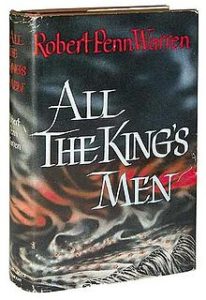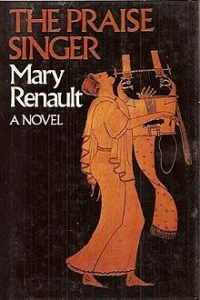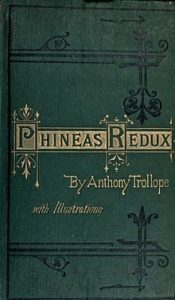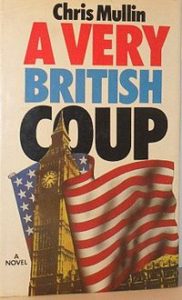‘Plague’ On sale now £9.99
Tags
Follow J.J.Anderson on Facebook
Follow J.J.Anderson on Pinterest
Archives
-
Recent Posts
Categories
http://www.thestorybazaar.com/rss.xml
Social
-
Privacy & Cookies: This site uses cookies. By continuing to use this website, you agree to their use.
To find out more, including how to control cookies, see here: Cookie Policy
A feast for the imagination


 RSS – Posts
RSS – Posts
Stories of Democracy
My literary knowledge must be incomplete, I thought, I can think of only relatively modern works. ‘Primary Colors‘ by Anonymous (1996) was the first book which sprang to mind. This fictionalised account of a southern Democrat seeking the Democratic Party’s nomination to be President, was discovered to be penned by Joe Klein who worked on the Clinton campaign. It is quite riveting and has, subsequently, been turned into a good film, but I’m not sure it’s a ‘great’ novel.
The would-be nominee in Klein’s work, Jack Stanton, shares a surname with a character in an earlier election novel, which could be said to have pretensions to ‘greatness’. The Pulitzer Prize winning ‘All the King’s Men‘ by Robert Penn Warren (1946) follows the career of a southern populist governor, Willie Stark and it too was filmed, in 1949, when it won the Oscar for Best Picture and in 2006. I haven’t read this, so cannot comment, but it’s now on my reading list.
Prize winning ‘All the King’s Men‘ by Robert Penn Warren (1946) follows the career of a southern populist governor, Willie Stark and it too was filmed, in 1949, when it won the Oscar for Best Picture and in 2006. I haven’t read this, so cannot comment, but it’s now on my reading list.
But what about older works? I thought of a number of classics in which elections featured, but they weren’t at their centre. So, there is an election in the Aubrey/Maturin books, one referred to in ‘Nicholas Nickleby‘ and in ‘The Mayor of Casterbridge‘ and there’s ‘Much Obliged, Jeeves‘ which is, peripherally, about an election, while actually being about what Jeeves books are always about. Doing a quick search on the internet suggested that the ‘election’ novel is indeed a relatively modern phenomenon. I could only find novels specifically about, or primarily driven by, an election, from the 19th century or later.
That’s not to say they are all set at times contemporary to their writing. Mary Renault’s ‘The Praise Singer‘ (1978) tells the story of the Athenian ‘Liberators’, Harmodius and Aristogeiton, who lead the rebellion against the Psisistratid rulers of Athens in the fourth century BCE. I read this book in my teens, when I first discovered Renault and her astonishing re-creations and re-interpretations of the distant past. I have read it several times since. Similarly her ‘The Last of the Wine‘ (1956), the story of the disastrous war against Sparta and, incidentally, the impact upon the city’s democracy is a book about that form of government. But while these books could be said to be about democracy, they’re not actually about elections, so don’t qualify as ‘election novels’.
of the Athenian ‘Liberators’, Harmodius and Aristogeiton, who lead the rebellion against the Psisistratid rulers of Athens in the fourth century BCE. I read this book in my teens, when I first discovered Renault and her astonishing re-creations and re-interpretations of the distant past. I have read it several times since. Similarly her ‘The Last of the Wine‘ (1956), the story of the disastrous war against Sparta and, incidentally, the impact upon the city’s democracy is a book about that form of government. But while these books could be said to be about democracy, they’re not actually about elections, so don’t qualify as ‘election novels’.
There are older election novels with contemporary settings. Thomas Love Peacock’s satirical election novel ‘Melincourt‘(1817) is little known ( not known at all by me ) but it’s set in the early nineteenth century. I do know Trollope’s ‘Palliser’ series of novels, also sometimes referred to as his ‘Parliamentary’ novels, which are set in Trollope’s time. Only one of them, ‘Phineas Redux’ (1874) fourth in the series, explores an actual election, specifically electoral fraud and its eventual, deadly, repercussions ( I rather liked the ending, when Phineas turns his back on politics, to settle down to domestic bliss, but it doesn’t say much for the political process ). The BBC television series The Pallisers first acquainted me with Trollope – I went to the books after watching ( although I prefer his ‘Barchester’ books and ‘The Way We Live Now‘ ).
specifically electoral fraud and its eventual, deadly, repercussions ( I rather liked the ending, when Phineas turns his back on politics, to settle down to domestic bliss, but it doesn’t say much for the political process ). The BBC television series The Pallisers first acquainted me with Trollope – I went to the books after watching ( although I prefer his ‘Barchester’ books and ‘The Way We Live Now‘ ).
In the fifties there was ‘The Suffrage of Elvira‘ by V.S.Naipaul (1958) a comic novel exploring local elections in a pre-independence Trinidad. More recently we have ‘A Very British Coup‘ by Chris Mullin (1982) which has been dramatised for television twice, once adapted by Alan Plater to win Bafta and Emmy awards and then, more recently and, in my view, less successfully, as ‘Secret State’ starring Gabriel Byrne. This had some similar themes as Leon Uris’ ‘A God in Ruins‘ (1999) about a fictional 2008 Democratic primary race.
fictional 2008 Democratic primary race.
There are a raft of later U.S. ‘political thrillers’, like John Grisham’s ‘The Brethren‘ (2000), Richard North Patterson’s ‘The Race‘ (2007). Though too often one can substitute ‘political thriller’ with ‘conspiracy novel’. That was certainly the case with Dan Brown’s ‘Angels & Demons‘ (2003) which, let’s not forget, was about a Papal election. In the U.K. we have a murderer stalking the Prime Ministerial candidate in James Craig’s 2011 debut ‘London Calling‘.
I’m certain I’ve missed something – the elements which contribute to an election, the uncertain outcome, the high emotional and, sometimes, financial stakes, the compromises, moral, ethical and otherwise, surely provide rich soil for a novelist to mine. There must be a ‘great’ election novel, it’s just so obvious I’ve over-looked it. If readers can think of one, please let me know.
If you enjoyed reading this article you might also enjoy Short Stories Novels Historical Naval Novels
Share this:
Posted on 13th June 2016 by juliej Leave a comment
This entry was posted in Book Reviews, Culture Vulture, Political comment and tagged Book reviews, Political comment. Bookmark the permalink.